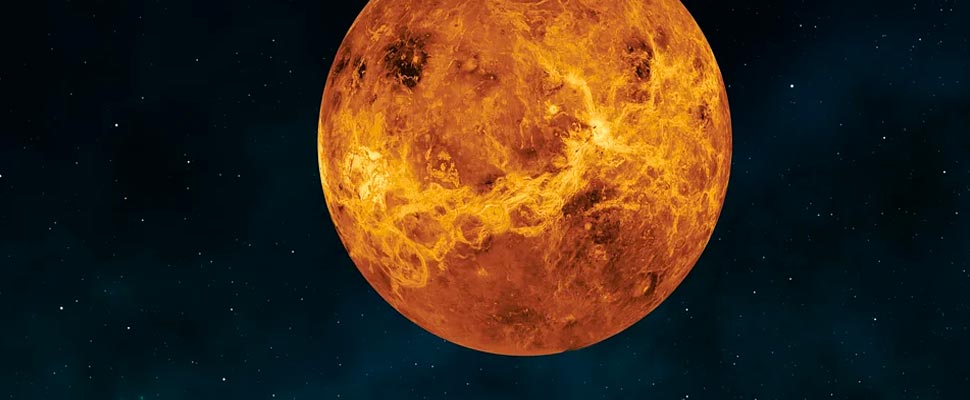Can Venus have life? Water could be the answer
One of the most intriguing planets in our galaxy might have some secrets to discover.

Scientists who have conducted studies on Venus, point out that the planet could have a climate just like the earth. / Photo: Pixabay
LatinAmerican Post | Ariel Cipolla
Listen to this article
Leer en español: ¿Puede Venus tener vida? El agua podría ser la respuesta
Venus is an intriguing planet. Recently, according to the FayerWayer website, scientists from NASA's Goddard Institute for Space Studies analyzed the hypothetical climate history of the planet, which spans the last 4.2 billion years, reaching a hypothesis: it would have a climate similar to that of the earth.
As the Europa Press website highlights, this would imply that the planet has held water for 3,000 million years. That is, if Venus had liquid surface water from the beginning, it could mean habitable conditions for an extended period, about which we don't know much more.
This being the case, as the ABC medium mentions, “life could exist in the atmosphere of Venus”. In other words, our neighboring planet could have created conditions of existence for there to be life beyond Earth. Let's see, then, what this discovery would imply and what other details we have.
The possibility of life on Venus
All of us, at some point in our lives, have wondered if there is something beyond what we know. Many science fiction movies have shown us some strangely shaped aliens, humans being the ones who imagine a different life than ours.
Although they are probably fictitious representations product of the imagination of our species, that does not mean that other different forms could not have existed – and even exist. This would be done, according to what the RRP Peru website mentions, in the form of “microbial” life, something that could be observed in the sulfur clouds of the planet.
According to what researchers from the Massachusetts Institute of Technology (MIT) emphasize, the "hellish" weather conditions on Venus could be suitable for microbial life. That is, they would be possible life forms that would have the ability to circulate up and down thanks to the sulfur clouds.
The Jornada México website even goes so far as to affirm that Venus microbes "manage to survive millions of years" thanks to their particular life cycle. Going deeper into it, we could talk that they would be housed inside the clouds of sulfuric acid, although that would not necessarily imply that there are beings with intelligence such as we imagine.
Now, all these situations lead us to think, as revealed by the CNN website in Spanish, that Venus was "potentially habitable", until a mysterious event occurred. That is, it is possible that the planet has maintained stable temperatures, with liquid water for millions of years. However, some kind of catastrophe could have occurred that changed the conditions of the planet.
Also read: Everything you need to know about the PS5 announcement
One of the main unknowns is what happened to that possible water on Venus, which currently cannot be observed. From the specialized institution of The European Space Agency they report that, on Venus, the solar wind rips off the upper layers of the atmosphere, throwing particles into space, which is why it could have lost a large part of its liquid.
Despite all these unknowns, there are also some plans to deepen the discoveries. According to the website of La Razón México, the private company Rocket Lab plans to prepare a mission for 2023 in which it will go in "search of life to Venus", so that some of its climatic mysteries can be discovered.
Therefore, we already know that the possibility that Venus had water at some point in its history could imply that it was a planet inhabited by some form of life . They would even be detectable if the expedition achieves its objectives, although it is clear that we will have to wait to obtain results and conclusions.





